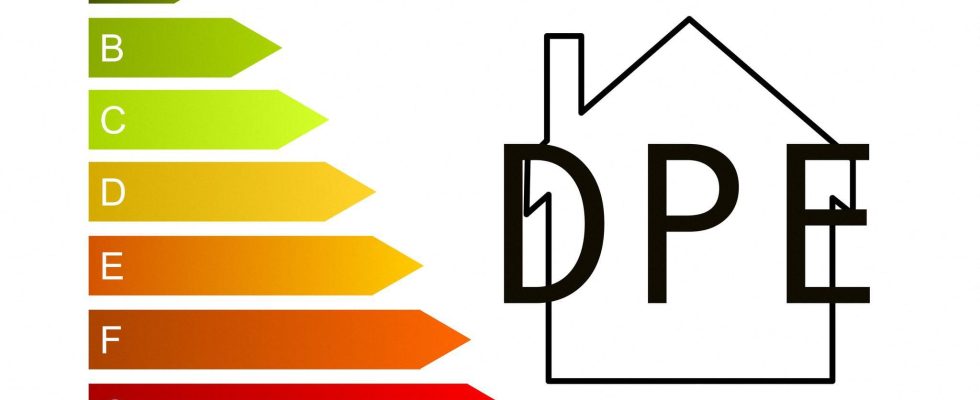This is the new roadmap for a sector in crisis. While the Prime Minister, Gabriel Attal, promised a “shock” in favor of housing, the Minister of Ecological Transition, Christophe Béchu, also in charge of Housing, announced a reform of the energy performance diagnosis (DPE).
In an interview with Parisian, published this Monday, February 12, the minister specifies that “there is a calculation bias which I announce to you to correct by a decree for which we are launching consultation this week”. “The smaller the surface area of a home, the more the share of domestic hot water weighs on its classification, with no real link to the number of occupants,” he explains. This “calculation bias” leads to the unjustified labeling “F” and “G” of nearly 27% of housing units of less than 40 square meters, according to the minister. According to him, this correction should therefore allow 140,000 homes of less than 40m2 to fall out of the energy sieve category (labeled F or G). “The housing units which will see their label improved represent 11% of the real estate stock of these areas,” assures Christophe Béchu.
Established in 2006, the DPE classifies housing from A to G based on their energy consumption and, since 2021, their impact on the climate. A new DPE, which came into force in July 2021, takes into account the impact on greenhouse gas emissions from housing. It is no longer based on occupants’ energy consumption bills but on the physical characteristics of the building. At the beginning of January 2024, a study by the Economic Analysis Council (CAE) already made conclusions on certain flaws in the DPE, including an error in assessing the energy consumption of certain goods.
“Clarify some rules”
Since January 1, 2023, the most energy-intensive housing (classified G+) has been prohibited from renting and from 2025, the rental of all housing classified G will be prohibited by the Climate law to achieve climate objectives from France. “We are not touching the calendar and the ambition, but we are going to clarify certain rules which apply on January 1,” Christophe Béchu said on Sunday. As a bill on degraded co-ownerships arrives for reading in the Senate in the coming days, the minister announces that a first government amendment will be tabled to emphasize that “January 1 is not a cut-off date.” It will specify that “the need to have carried out work to re-rent a thermal sieve classified G will only apply at the time of renewal of the lease, either by tacit renewal, or at the change of tenant”, summarizes the minister.
A second amendment will allow, according to the minister, that as soon as co-owners vote in a general meeting on work on common areas, the ban on renting will be “suspended for two years from the date of the vote, the time for it to carry out the works”.
Announcements to simplify the MaPrimeRénov’ energy renovation aid system should also be made following a meeting on February 15 with the construction industry. Another important point: the Minister of Ecological Transition indicated that he had to meet players in the banking sector to “discuss new financing arrangements” for French people who are no longer able to borrow today.
